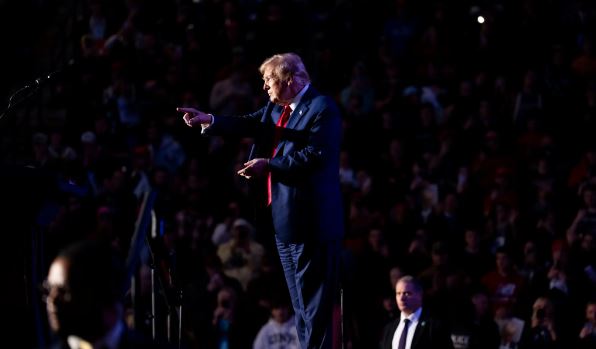As the 2024 campaign unfolds, the intersection of politics and the law takes center stage, propelled by the dual role of former President Donald J. Trump as both a criminal defendant and a leading Republican candidate. The unexpected collision between politics and the judiciary, particularly the Supreme Court, is poised to significantly influence the upcoming election.
Already, the nine justices have agreed to review the obstruction statute central to the federal indictment against Mr. Trump, accusing him of plotting to overturn the 2020 election. The court may also grapple with his attempts to dismiss charges based on claims of executive immunity and challenge a gag order restricting his criticism of Jack Smith, the special counsel overseeing the case.
Additionally, the Supreme Court might be drawn into civil lawsuits seeking accountability for the Capitol violence on January 6, 2021. A novel and momentous legal question looms: should Mr. Trump be disqualified from state ballots for his alleged involvement in the insurrection, violating a Reconstruction-era constitutional amendment?
The court’s potential involvement places it in a political spotlight not experienced since Bush v. Gore in 2000. The issues at hand could significantly impact the timing and scope of proceedings against Mr. Trump, influencing his candidacy’s status and, consequently, his chances of winning the election.
David Becker, executive director of the Center for Election Innovation and Research, suggests that the Supreme Court’s role in this cycle might surpass its impact in Bush v. Gore. The issues extend beyond whether Mr. Trump engaged in insurrection, raising questions about presidential immunity and criminal proceedings.
The timing of the court’s decisions is critical. The potential disqualification of Mr. Trump based on the 14th Amendment could affect the presidency’s eligibility. Delays in addressing issues like executive immunity might impact the trial schedule, potentially pushing it beyond the general election season.
The court’s decisions could occur amid heightened scrutiny. Recent decisions on contentious issues and revelations about justices’ finances have led to accusations of political influence. Given Mr. Trump’s expectations regarding the justices’ alignment with his interests, any decisions favoring him may face intense criticism.
Despite the court’s conservative majority, it has shown reluctance to support Mr. Trump’s attempts to leverage presidential powers for personal benefit or interfere with democratic processes. The court rejected lawsuits seeking to overturn the last election and dismissed a petition to invalidate results in key battleground states.
However, predicting the court’s actions in the current context remains uncertain. The complex web of overlapping cases involving Mr. Trump raises questions about which issues the court might address, how it will rule, and the downstream effects on lower courts handling the former president’s criminal and civil proceedings.
Mr. Trump’s strategy involves not just winning legal arguments but also delaying cases, ideally until after the election. If successful, he could wield the power to dismiss federal charges and complicate local prosecutors’ efforts to hold him accountable.
The courts, recognizing the timing challenges, find themselves in an unusual position. Balancing a fair trial schedule against the potential impact on voters’ knowledge and Mr. Trump’s electoral fortunes adds complexity to an already intricate legal and political landscape.
Alan Rozenshtein, a former Justice Department official, aptly describes the situation as “extremely awkward.” The entanglement of courts in Mr. Trump’s legal and political future prompts reflection on the extent to which ordinary voters versus judges will shape the election’s outcome. The unresolved question remains: how much will judicial decisions impact voters’ ability to assess evidence of alleged crimes before casting their ballots?
While some argue that political problems like Trump’s should be addressed through politics, others emphasize the role of legal principles in structuring electoral choices. The delicate dance between the Supreme Court, politics, and the law unfolds as the 2024 election cycle progresses, leaving observers to ponder the intricate dynamics shaping the future of American democracy.

